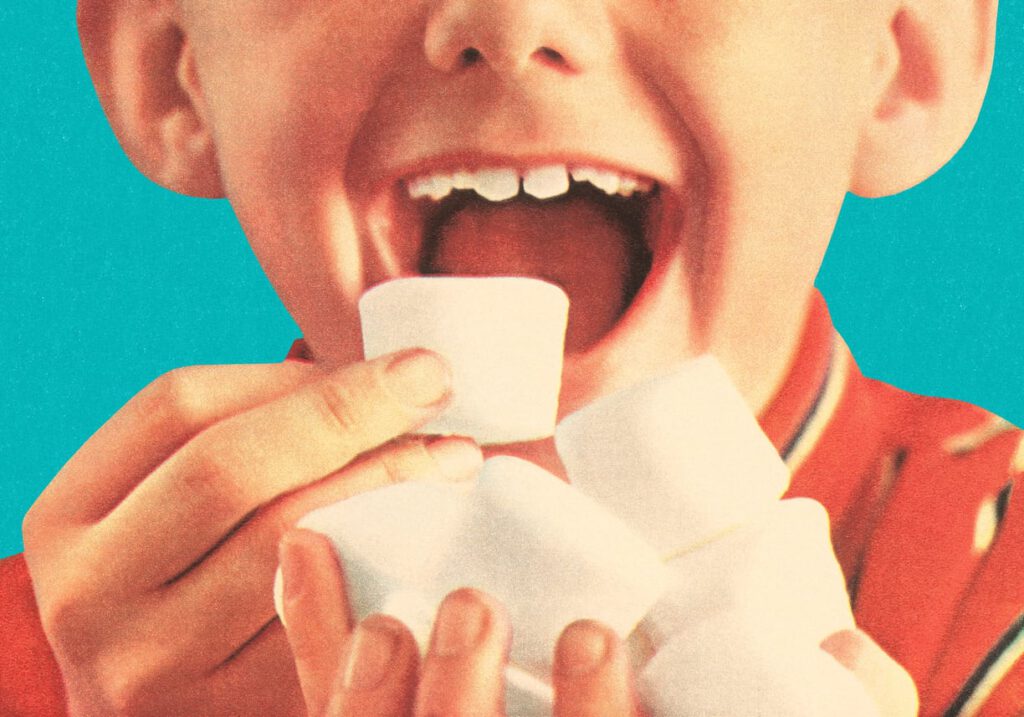Some people want what they want when they want it, while others can patiently wait for a bigger and better reward later.
Researchers at the University of California, San Diego, want to find out if there is a genetic basis for that and are studying what is known as ‘delay discounting’ — a tendency to overvalue immediate rewards more than future ones which can lead to impulsive behavior.
“Studying the genetic basis of delay discounting is something I’ve wanted to do for the entirety of my 20 years of research,” said senior author Abraham Palmer, Ph.D., professor of psychiatry and vice chair for basic research at the University of California, San Diego School of Medicine. “But it takes a huge number of people for a genetics study to be meaningful.”
That’s where 23andMe came in, helping Palmer and his team to gather enough data from enough people to make this research possible.
Palmer’s and other’s interest in delay discounting is in part because many studies have shown that more extreme impulsivity is also commonly found in people with a host of neuropsychiatric conditions, such as Attention Deficit and Hyperactivity Disorder (ADHD), major depression, smoking dependency and being overweight.

The most famous example of research around delay discounting is a 50-year-old study known as the Stanford Marshmallow Experiment. As part of the study, researchers offered children a choice of either an immediate reward — one marshmallow — or if they could hold out for 15 minutes alone in a room with the marshmallow in front of them, there’d be a bigger, better reward — two marshmallows. The researchers later followed up with these children to look at different measures of success and found that those kids who were able to hold out faired better on things like SAT scores and were less likely to be overweight.
Scientists have since learned through studies of identical and non-identical twins that “delay discounting” is strongly heritable. But little is known about its genetics, or how it might relate to these other conditions. So Prof. Palmer and his team at UC San Diego worked with 23andMe scientists on the studying and gathering data from 23andMe customers who consented to participate in research and complete a survey to measure their impulsivity. (Check out an interview we did with Prof. Palmer here.)
“In less than four months, we had responses from more than 23,000 research participants,” said Pierre Fontanillas, Ph.D., a senior statistical geneticist at 23andMe. “This shows the power of our research model to quickly gather large amounts of phenotypic and genotypic data for scientific discovery.”
The first findings from this work — and the first-ever genome-wide association study of delay discounting — was published this week in the journal Nature Neuroscience.
The study identified several genetic variants associated with delay discounting and found significant genetic correlations between delay discounting and ADHD, smoking addiction, depression, and BMI. While researchers have long know that these conditions were correlated, this is the first time that scientists have also been able to see that these are also genetically correlated, according to the paper.
The researchers said that this also highlights the advantage of this research model for the study of behavioral traits and neuropsychiatric conditions. In fact, the same team that worked on this study also recently completed a study of similar size looking at the genetic factors that contribute to alcoholism that appeared in the journal Addiction Biology.
Palmer believes a larger study with a more diverse population would yield more results.
You can find the full paper in Nature Neruoscience.



